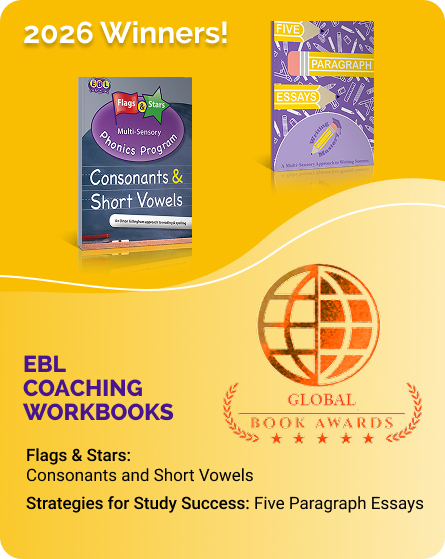
How to Improve Your Dyslexic Child’s Reading Skills
Originally published on the Macaroni Kid website

For most dyslexic children, reading is an arduous task. They often struggle to sound out words and read with fluency and, as a result, find little pleasure in reading. While most children with dyslexia benefit from multi-sensory instruction from a trained professional, you can help your child develop her reading skills – and joy for reading – with the strategies detailed below.
Word Attack
Children with dyslexia typically have trouble with sounding out words – especially ones they haven’t seen before. Many students look at the beginning sound and guess at the correct word or simply skip certain words when reading. In doing so, their reading becomes inaccurate and may lead to a loss of meaning. To develop these decoding skills, your child will likely need comprehensive multi-sensory reading instruction, but you can help reinforce these skills by encouraging him to sound out shorter words and syllabicate longer words when reading, rather than guessing. For a young child, have him trace letters in colored sand, salt, or shaving cream for a tactile experience. If your child struggles to spell a word, rather than immediately providing the correct spelling, use a set of magnetic tiles and ask him to spell the word sound-by-sound using the tiles.
Reading Fluency
Reading fluency is a key component to reading for meaning. Help your child improve her reading fluency with this four-step choral reading process:
1. Select a passage to read, slightly below your child’s approximate reading level. Have her read the passage aloud as a cold read.
2. Next, you read the same passage aloud to model appropriate fluency.
3. Your child then reads the same passage with you, keeping up with your pace.
4. Finally, your child reads the same passage out loud as a final read. Draw her attention to the difference between her first and final reads and empower her with the improvement!
Repeatedly practicing this strategy with your child will help build her confidence and fluency when reading.
Reading Comprehension
Becoming an active reader can help students improve their overall comprehension and memory skills. To build this skill, before reading a passage or text book selection, ask your child to review any headers, sub-headers, pictures, picture captions, and vocabulary words. You can also talk to him about prior knowledge he may have about the topic before reading, and have him predict what he thinks the passage will be about before he begins. Also, as he reads, have him highlight the topic (one, two, or three words describing the passage) in blue, main idea (what the author is saying about the topic) in green, and the important details (important information describing the main idea) in yellow. These active reading strategies will help improve his processing and overall reading comprehension skills.
Vocabulary
Many dyslexic children respond well to visual graphics for learning new information. To help your child learn new vocabulary words, try this multi-modal approach:
Have her write each vocab word using a black marker on the front of a flash card. Then have her turn the card around and divide the back side into three horizontal sections. At the top, she should write the definition of the word in her own words (not verbatim from a dictionary). She should then draw a horizontal line beneath it, and write a detailed sentence integrating the word. Finally, at the bottom she should draw a picture illustrating her sentence to help her remember the definition.
As students progress through school, the reading and language demands increase rapidly. Try these tips and strategies to help your dyslexic child feel more confident and successful in school.

